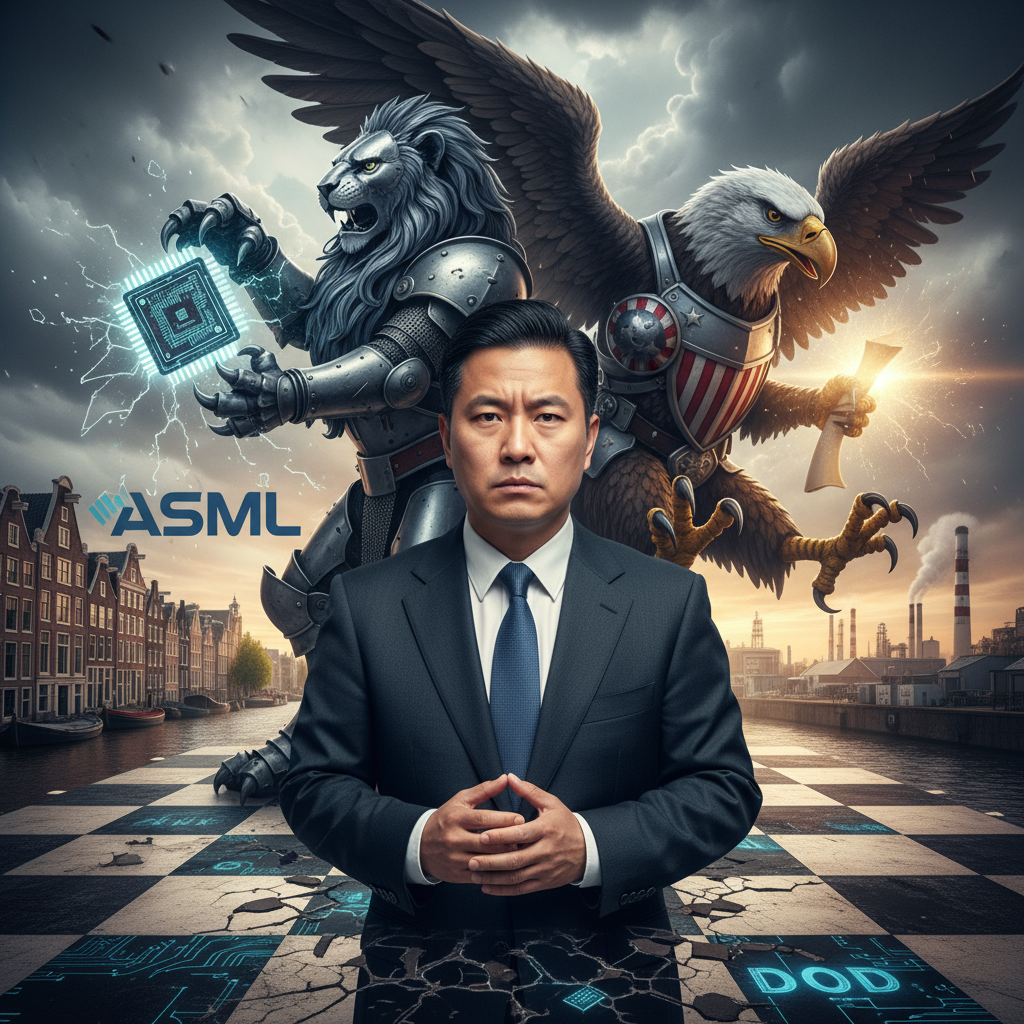The Chip War Heats Up: A Dutch Seizure, a US Ultimatum, and a Chinese Director at the Center

The global semiconductor industry, the bedrock of modern technology, is increasingly becoming a battleground for geopolitical supremacy. From smartphones to supercomputers, these tiny marvels power our world, and the fight for control over their production and technological advancement is intensifying. A recent development involving a Dutch chipmaker, a US ultimatum, and the removal of a Chinese director has sent ripples throughout the tech world, highlighting the complex and often contentious intersection of national security, economic ambition, and international relations. This isn’t just about microchips; it’s about the future of global tech dominance.
The Unfolding Drama: A Dutch Takeover and a Foreign Director

The story centers on a specific Dutch chipmaker, though its identity is less important than the precedent set. What is crucial is that this company possessed technology deemed strategically vital by various global powers. The plot thickened with the appointment of a Chinese national to a leadership position within the firm. In today’s climate of heightened competition and suspicion, such an appointment immediately raises red flags for nations concerned about intellectual property theft and technological transfer, especially when dealing with critical technologies.
The concerns didn’t remain theoretical for long. Reports indicate that the Dutch government moved to effectively “seize” or nationalize this particular chipmaker. This drastic measure wasn’t a spontaneous decision but rather the culmination of significant international pressure. Such an intervention by a government into a private enterprise is almost unprecedented in a market-driven economy, signaling the extreme strategic importance of the company’s technology and the perceived threat posed by its leadership structure.
The American Hand: An Ultimatum and its Implications
What truly brought this saga into sharp focus was the revelation that the Dutch government’s action was reportedly preceded by a stern ultimatum from the United States. The US, a dominant force in semiconductor design and a staunch advocate for tightening controls over advanced chip technology, has been particularly vocal about restricting China’s access to crucial semiconductor manufacturing capabilities. This move demonstrates the US’s unwavering commitment to its strategy.
The American ultimatum was clear: remove the Chinese chief from his position or face severe consequences. These consequences, while not explicitly detailed, could range from restrictions on technology sales to the Dutch company, blacklisting it from critical supply chains, or even broader diplomatic pressures. The leverage the US holds, particularly through its control over foundational intellectual property, software, and tools essential for chip manufacturing, is immense. This incident serves as a stark reminder of the long arm of US foreign policy in the tech sector and its willingness to use economic pressure to achieve strategic objectives.
The Broader Context: The US-China Tech War
This Dutch chipmaker incident is not an isolated event; it’s a critical new chapter in the ongoing US-China tech war. The battle for technological supremacy, particularly in semiconductors, has become a defining feature of 21st-century geopolitics. The US views China’s rapid technological advancement, often perceived as fueled by state-sponsored initiatives and intellectual property acquisition, as a direct challenge to its economic and national security interests.
- Export Controls: The US has imposed stringent export controls on advanced semiconductor technology to China, aiming to hobble China’s ability to produce cutting-edge chips for military applications and AI development.
- “De-risking” Supply Chains: Western nations are actively working to “de-risk” their supply chains by reducing reliance on Chinese manufacturing and promoting domestic or allied-country production.
- Talent Restrictions: There have also been efforts to limit the flow of talent and expertise from Western nations to Chinese semiconductor companies, further constricting their development.
This intense competition forces allied nations, like the Netherlands, to choose sides, often at the expense of their own economic relationships with China. The Netherlands, home to ASML, a company critical to advanced chip manufacturing, finds itself in a particularly delicate position, balancing its commercial interests with geopolitical pressures.
Conclusion: The Future of Global Tech and National Sovereignty
The Dutch seizure of the chipmaker, following a US ultimatum over a Chinese chief, underscores a profound shift in the global technological landscape. It highlights the increasing intersection of national security with economic policy and the willingness of powerful nations to intervene directly in private industry when strategic interests are perceived to be at stake. This incident sends a clear message: in the battle for technological leadership, neutrality is becoming an increasingly difficult stance.
For nations, it means a re-evaluation of technology transfer policies and a heightened awareness of foreign ownership in critical sectors. For businesses, it signifies a new era of geopolitical risk, where supply chains and leadership structures are scrutinized not just for economic efficiency but for national security implications. As the lines between technology and geopolitical power continue to blur, such interventions, while disruptive, may become a more common feature of international relations, shaping the future of global technology and the very definition of national sovereignty in the digital age. The chips are not just falling; they are being strategically placed, often with an iron fist.

